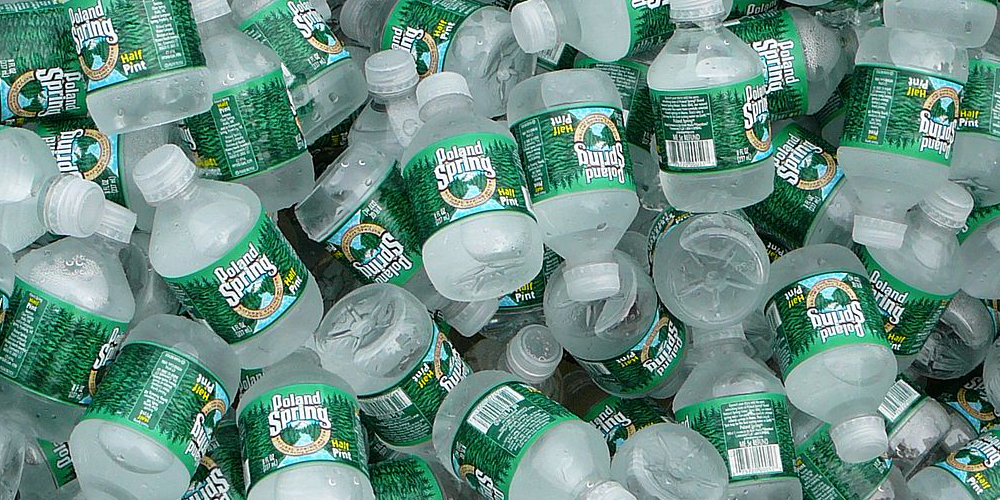The Case for Tap Water
By Eve Brown
March 15, 2017

By Brett Weinstein (talk) (Uploads (Own work by the original uploader) [CC BY-SA 2.5], via Wikimedia Commons
Millions of Americans spend almost 2000 times more than they should on a product they consume multiple times a day and most folks acquire for virtually nothing: water.
The reason so many are willing to pay a premium price for their water is they are under the impression bottled water is safer, cleaner, or healthier than tap water. But tap water has been proven to be just as safe as bottled water. Making the switch from bottled water not only saves the consumer money, it also has enormous positive effects on the environment.
Under federal law, tap water and bottled water are regulated differently. The U.S. Environmental Protection Agency regulates the quality of public water systems, while the U.S. Food and Drug Administration oversees the quality of bottled water (Postman, 2016). Public water systems must meet standards based on disinfection and filtering, and must undergo testing for a wide variety of possible contaminants. Bottled water is not held to those same standards (Postman, 2016). While bottled water and tap water must be tested for bacteria, bottled water is only required to be tested once a week, while tap water must be tested at least 100 times a month (Postman, 2016). The only instance where bottled water has an advantage is with regard to lead. Bottled water has strict standards for lead. But older homes and municipal infrastructures may have lead pipes that can contaminate tap water. (Postman, 2016).
Another difference is environmental impact. Every year, the United States gulps about 50 billion bottles of water, and most of those bottles do not end up in the recycling bin (Karlstrom & Dell’Amore, 2010). More than 80% end up in landfills where they release toxic chemicals during their incredibly time-consuming decomposition (Karlstrom & Dell’Amore, 2010). If one needs to carry around water, tap water can be placed in reusable bottles or glasses thereby eliminating the need for single use plastic bottles. Additionally, the production and transportation of these plastic bottles have a huge impact on the environment in terms of energy use and fossil fuel emissions. According to Gleick and Cooley (as cited in Zyga, 2009) the production of a liter of bottled water demands anywhere between 5.6 and 10.2 million joules of energy, almost 2000 times the energy required to produce the same amount of tap water, which is only about .005 million joules. The transportation of these water bottles for delivery around the country releases tons of combusted fossil fuel into the air.
According to the Sierra Club, water-bottle companies obtain their water from underground aquifers, which is harmful to local watersheds (Karlstrom & Dell’Amore, 2010). What is even more distressing is that “according to some estimates, it takes up to three liters of water to produce one liter of bottled water” (Karlstrom & Dell’Amore, 2010). Our access to water is limited and with our ever-growing population we need to conserve as much water as possible for future generations. Mindlessly wasting two liters of water for every one liter produced is excessive and unnecessary.
Bottled water does have a place in emergency situations and areas where tap water has proven unsafe. For the most part, however, America’s public water supplies are the safest choice and bottled water is an avoidable burden on our wallets and our environment. Bottled water drinkers should evaluate their water drinking habits and take advantage of the safer, more environmentally-friendly choice: tap water.
References
Karlstrom, S., & Dell’Amore, C. (2010). Why Tap Water is Better Than Bottled Water. Retrieved from http://news.nationalgeographic.com/news/2010/03/100310/why-tap-water-is-better/
Postman, A. (2016). The Truth About Tap. Retrieved from https://www.nrdc.org/stories/truth-about-tap
Zyga, L. (2009). How Much Energy Goes Into Making a Bottle of Water? Retrieved from http://phys.org/news/2009-03-energy-bottle.html
